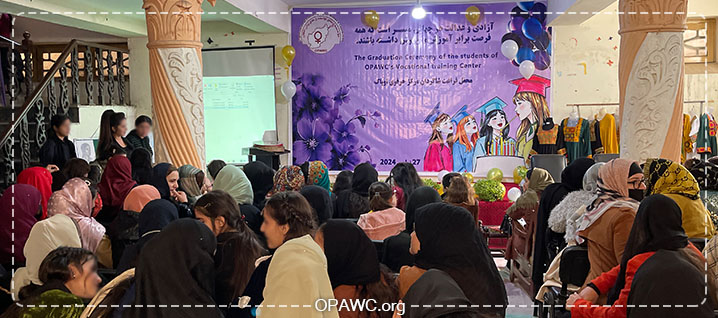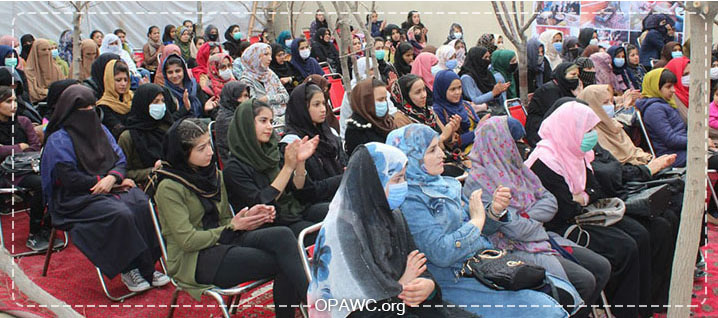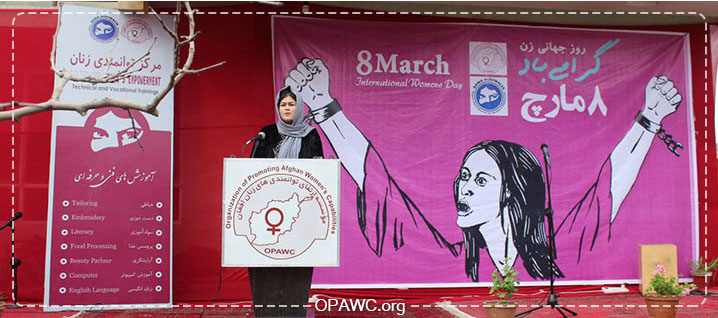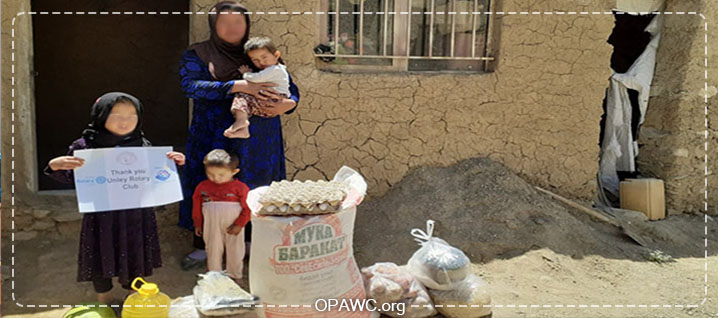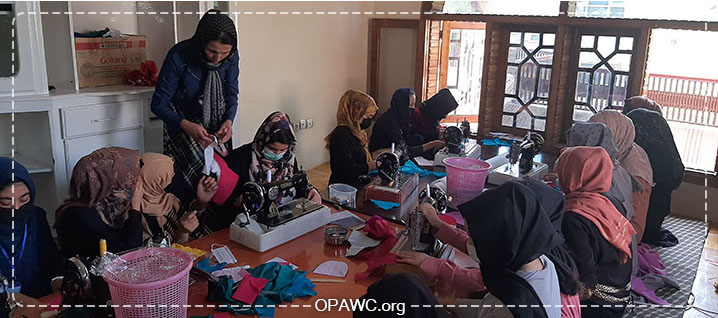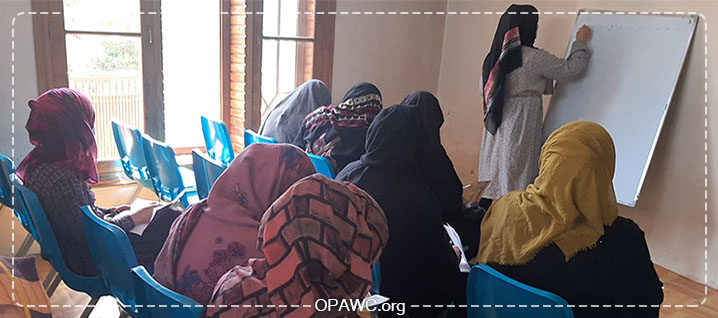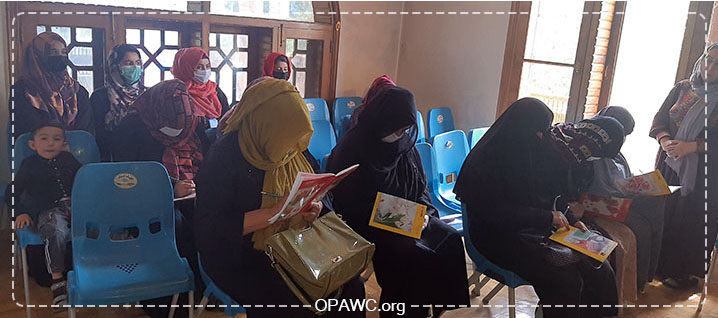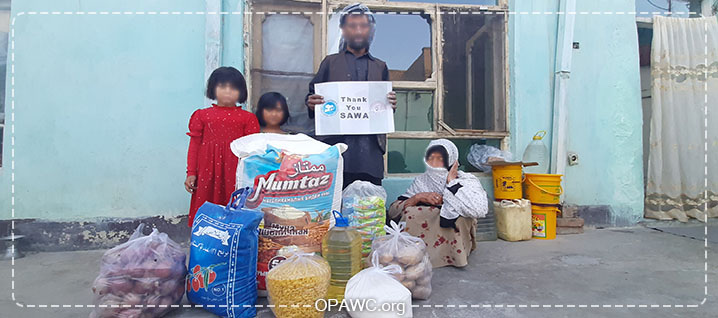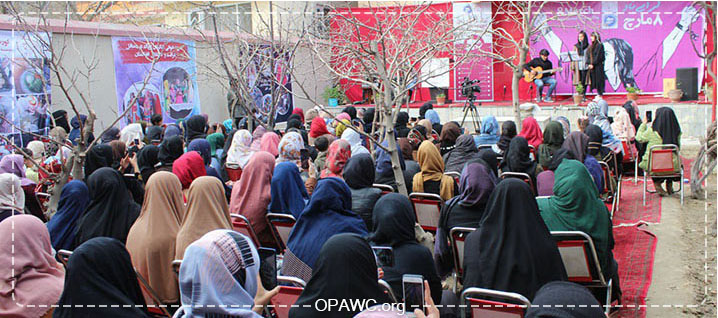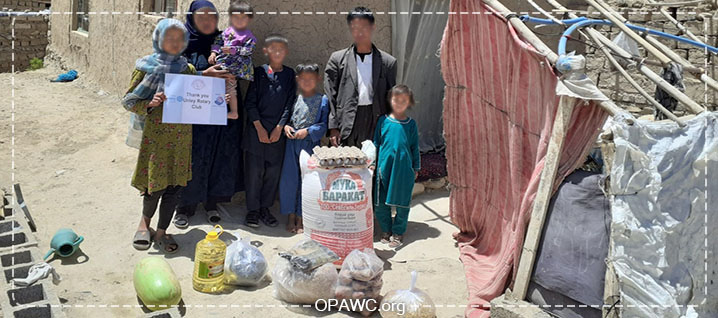Following the Taliban's takeover in August 2021, Afghanistan's social, political, and economic situation has drastically changed. Many people lost their jobs, and women have been hit the hardest, as they were forced out of their workplaces and prevented from traveling alone, visiting parks, and working in offices due to new laws. During the crisis, the World Health Organization (WHO) and the World Food Programme (WFP) continued to support those in need; however, they were unable to help everyone. Civil society organizations, such as OPAWC, stepped up with the support of generous donors to provide assistance to those affected by earthquakes and floods.

When Afghan refugees were forcibly returned to their country, the government had no proper plan in place for them. As a result, many were forced to live in rural and remote areas without access to medical care, clean water, education, or shelter. These individuals had to construct homes using mud and tree branches.
In October 2023, a series of earthquakes struck Herat province, destroying over 25 small villages and killing more than 2,000 people while injuring over 2,500. Most of the victims were women and children who were sleeping in their homes. The primary cause of death was suffocation due to being buried under soil. The earthquakes displaced more than 44,000 people, with over 114,000 requiring humanitarian aid. While homes in the villages were completely destroyed, those in Herat city were left severely damaged and unsafe to inhabit. People began leaving their homes and living in parks, on the streets, and in huts and tents on the mountains.
OPAWC immediately took action with the support of its donors. Its staff visited affected villages and provided medical and nutrition assistance to those in need. In the first phase, the OPAWC team provided emergency medical aid. In the second phase, food and nutrition materials were distributed. During their visits, the OPAWC staff listened to people's stories, and many had harrowing experiences.

Fatema, a mother of seven children, shared her story. Her husband couldn't find work after completing his studies, and he now works as a rickshaw driver. He leaves early in the morning and returns home late at night with very little income. Fatema said, "When the earthquake occurred, my three daughters and I were at home, while my sons were at school. We left the house in a hurry, and I ran with great fear towards my sons' school. I was filled with the fear of losing my children and did not realize that I was running without shoes. I ran and ran until I felt a severe pain in my legs and saw that they were covered in blood." She continued with tears and sadness, "I hope we'll never experience something so terrible again. Our house has developed so many cracks that it could collapse at any moment, but we have no choice. We cannot afford to move and rent a new house as the rents are very high. Some nights, I wake up and stare at my children and at the ceiling for a few minutes. I worry that one night the ceiling might fall on us."
Simin, a middle-aged woman, appears older than her age due to years of suffering and misery. Her husband is a drug addict who left their home a year ago, leaving Simin to care for their five young children alone. After many attempts, Simin secured a job as a hospital cleaner, earning a monthly salary of $50, most of which goes towards rent.
"When the earthquake struck, we were terrified and fled outside as quickly as possible," Simin recalls. "Our mud house collapsed, destroying all of our belongings. Thankfully, we were unharmed. I had to rent another house and buy new household items with borrowed money from our neighbors. Life is becoming increasingly difficult for us. I worry about losing my job, finding a new one, and feeding my family."
Amina is another woman whose husband abandoned her and their four children years ago to work in Iran, never to be heard from again. Amina's eldest son sells salted chickpeas, while Amina washes clothes at people's homes during the day and cooks the chickpeas at night.
Amina and her children live with her elderly father, who is unable to work and struggling financially. Despite the damage caused by the earthquake to their home, they cannot afford to repair it. "Worrying that the ceiling might collapse and waking up in the middle of the night has become a regular occurrence for me," Amina shares.


